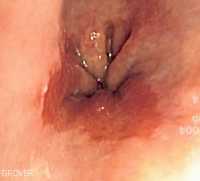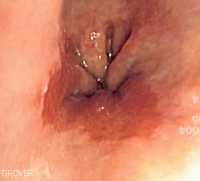
05 Aug HPV Status Influences Survival in Esophageal Cancer
MedicalResearch.com Interview with:
Shan Rajendra MBBCh, MSc , MD, FRCP, FRACP
Professor of Medicine
University of New South Wales
Director of Medicine & Clinical Executive Director
Bankstown-Lidcombe Hospital
Director Gastro-Intestinal Viral Oncology Group
Ingham Institute for Applied Medical Research
Sydney
MedicalResearch.com: What is the background for this study?
Response: High-risk human papillomavirus(HPV) infection has been strongly associated with a subset of Barrett’s dysplasia and oesophageal adenocarcinoma.
The research question was; Does HPV status of Barrett’s high-grade dysplasia and esophageal adenocarcinoma influence survival as in viral positive head and neck cancers?
We therefore sought to determine the prognostic significance of esophageal tumor HPV status and associated viral transcriptional markers (E6/E7 mRNA and p16INK4A) and TP53.
MedicalResearch.com: What are the main findings?
Response: Among 142 patients with high-grade dysplasia and esophageal adenocarcinoma, 37 were HPV positive and 105 HPV negative.
Patients who were HPV positive mostly had high p16INK4A expression, low p53 expression and wild-type TP53 and were early T stage tumors. HPV positivity and associated viral transcriptional markers were associated with a significantly improved disease-free survival compared with viral negativity. Recurrence and progression were reduced in the HPV-positive cohort as was distant metastasis and death from esophageal adenocarcinoma.
Mean overall survival was also significantly improved in the HPV-positive group compared with the HPV-negative cohort.
MedicalResearch.com: What should readers take away from your report?
Response: HPV+ HGD/EAC is a distinct biological entity with a favourable prognosis as compared with viral negative esophageal tumors.
MedicalResearch.com: What recommendations do you have for future research as a result of this work?
Response: If these findings are confirmed in larger cohorts with more advanced disease, it presents an opportunity for treatment de-escalation in the hope of reducing toxicity without deleteriously affecting survival.
Citation:
Rajendra S, Xuan W, Merrett N, et al. Survival Rates for Patients With Barrett High-grade Dysplasia and Esophageal Adenocarcinoma With or Without Human Papillomavirus Infection. JAMA Network Open.2018;1(4):e181054. doi:10.1001/jamanetworkopen.2018.1054
[wysija_form id=”3″]
[last-modified]
The information on MedicalResearch.com is provided for educational purposes only, and is in no way intended to diagnose, cure, or treat any medical or other condition. Always seek the advice of your physician or other qualified health and ask your doctor any questions you may have regarding a medical condition. In addition to all other limitations and disclaimers in this agreement, service provider and its third party providers disclaim any liability or loss in connection with the content provided on this website.
Last Updated on August 5, 2018 by Marie Benz MD FAAD

